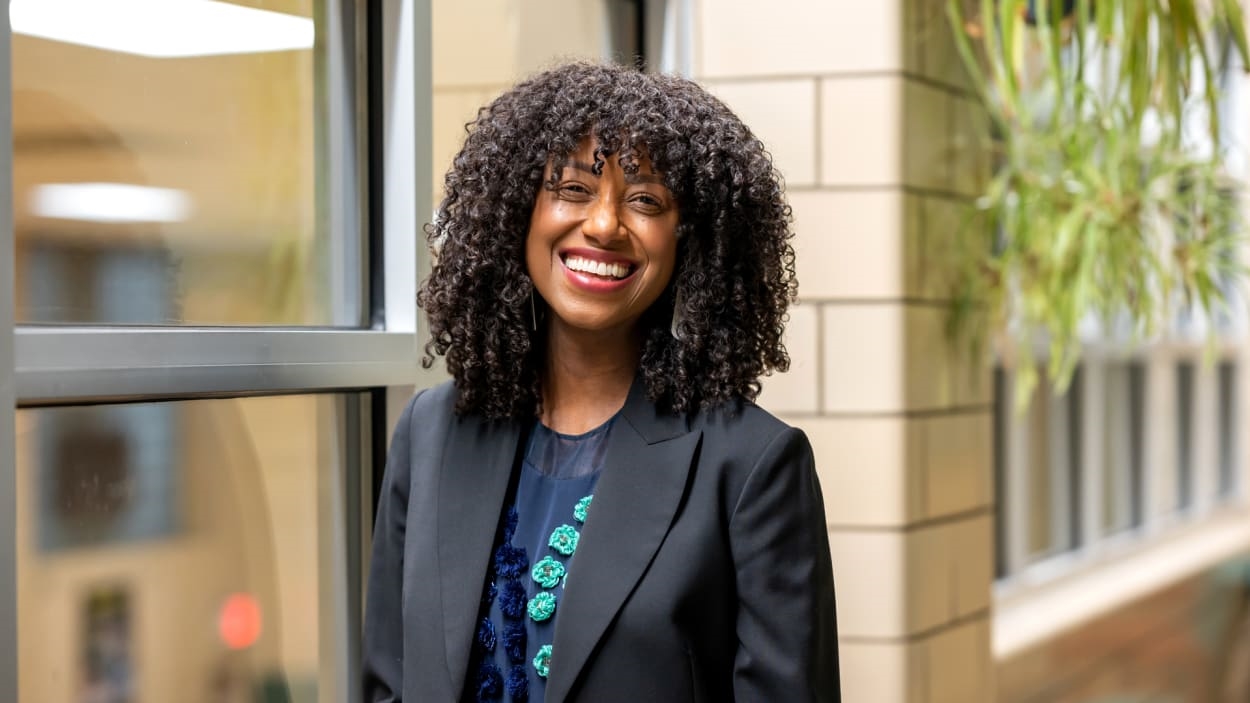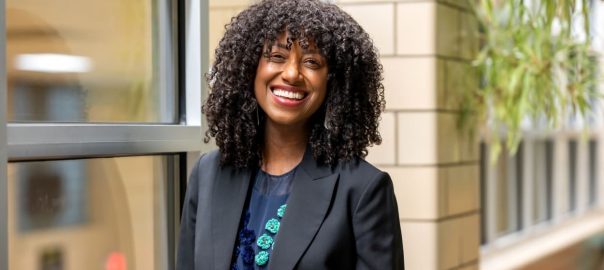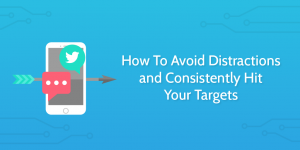By Jenna Abdou
When Tarika Barrett, PhD, was pivoting Girls Who Code’s (GWC) programs to online learning during the pandemic, she heard a story that became a guiding light for her team.
Karina Popovich, a GWC alum, created Makers for COVID-19, a global coalition 3D printing up to 22,000 units of personal protective equipment (PPE) for healthcare professionals every week.
“I thought to myself: We’re in a life or death situation and one of our alumni is saying: ‘Not only do I see a problem, I’m going to leverage technology to solve it,’’ she reflects. “Our students’ joy and resilience fuel me. That has to be the fire, you know?”
Barrett has devoted her life’s work to educational equity, most recently advancing GWC’s mission to close the gender gap in tech. Here, she shares how she harnesses joy as activism.

Fast Company: What’s the case—and evidence—for being a joyful activist?
Tarika Barrett: The case for being a joyful activist is that our problems are outsized. We’re going to be tackling some of them for the rest of our lives. With that understanding, every interaction ends up being precious, right? Every moment of connection needs to be cherished and respected as its own manifestation of positive change.
It’s critical that I understand our students’ complex and inspiring paths and give them hope that they’re going to be bright. There is absolutely room for anger and frustration as we fight injustices in our work. But, I also know how much acts of kindness and being seen and valued means to our young people. Connection has to be core to our approach.
At some point, I stopped questioning whether my conversations should be marked by humor and authentic questions about people’s lives and leaned into it. I’ve become more comfortable in my skin as a leader because of it.
FC: I hid my positivity because it was often perceived as naive. Have you experienced this? If so, how do you respond when people don’t value your optimism?
TB: I’ve definitely experienced moments where either myself or others responded positively only to be diminished. I come back to my anchors of optimism and authenticity. I push myself to remember that folks are coming from a good place in their hearts. Carrying positive assumptions releases you from the hold negative thoughts can have on you, which is important in difficult situations.
FC: Our perspective is shaped by what we choose to pay attention to. How do you make amplifying the good a habit?
TB: I give myself permission to regulate what I pay attention to. I listen to the news daily. But, I also choose touchpoints of joy. Whether that’s starting my morning with a poem or meditation, having that touchpoint makes it easier for me to stay rooted throughout the day.
Beyond that, I allow myself the joy of human interactions. Our team laughs when things get hard. It’s a recognition that we’re trying to move these mountains, but we can’t control everything. Joyful humility allows us to persevere.
FC: Collective joy is foundational in your philosophy. How do you instill it among your team and community?
TB: We brought our entire team together for a special all staff retreat last fall. Folks were assigned to groups to explore NYC and spend time with team members they don’t regularly work with. When our VP of People and Culture, Jana Chandler-Ligon, first shared the idea, I was thinking in the old paradigm of goals and outcomes. She told me: “This is about how people feel. It’s about anchoring in joy.” I completely trusted her. Still, it took me a minute. Jana was wise in understanding that what we needed was connection. We needed to center our team in our purpose to be reminded of what the work is actually for.
It’s important to trust your instincts and not treat joy and connection as peripheral values. We’ve created a culture where joy matters and work harder because of it. It’s an intrinsic and collective motivation that doesn’t resemble burnout paradigms.
FC: It feels like our ability to find light amidst darkness is tested daily. Still, you’re a lighthouse for your community, even if CEO isn’t a role you anticipated playing. How do you anchor in hope when it feels so distant?
TB: Our chief program officer, Dr. Daniel Voloch, and I recently visited a GWC club where the girls asked me about the hardest part of my job. I saw it as a moment to pull back the curtain and tell them: I may be talking to you now, but stepping out front was very hard for me.
Our students’ potential is what moved me from being a reluctant lighthouse to an embracing one. I share their stories because I know everyone who hears them is going to understand the urgency of thinking about opportunity differently. Our girls aren’t going to be left behind as tech intersects with every touchpoint of our lives. To not have our young people, especially our young people of color, have a voice is unconscionable. They’re the fire in the belly that gives me hope.
FC: You’ve shared that when you acknowledge joy, you find more of it. How does joy sustain you and where can we discover more of it?

TB: Joy sustains me every day. It’s an ongoing journey of recognizing moments of joy, unpacking what I was doing, and giving myself the space and grace to embrace it.
If I have any advice, including for myself, it’s to pay attention. Moments of connection pass me by when I’m tethered to my inbox, rather than listening to my daughter singing or my son’s ridiculous, Would you rather?, questions.
There are all of these little lights; some may not be shining as brightly as you think. But, folks’ lights get brighter when you share yours. I embrace open and vulnerable leadership because I’m trying to model that you can show your light. You can embody a different way of being.
Jenna Abdou is the creator and host of 33Voices.
(2)







